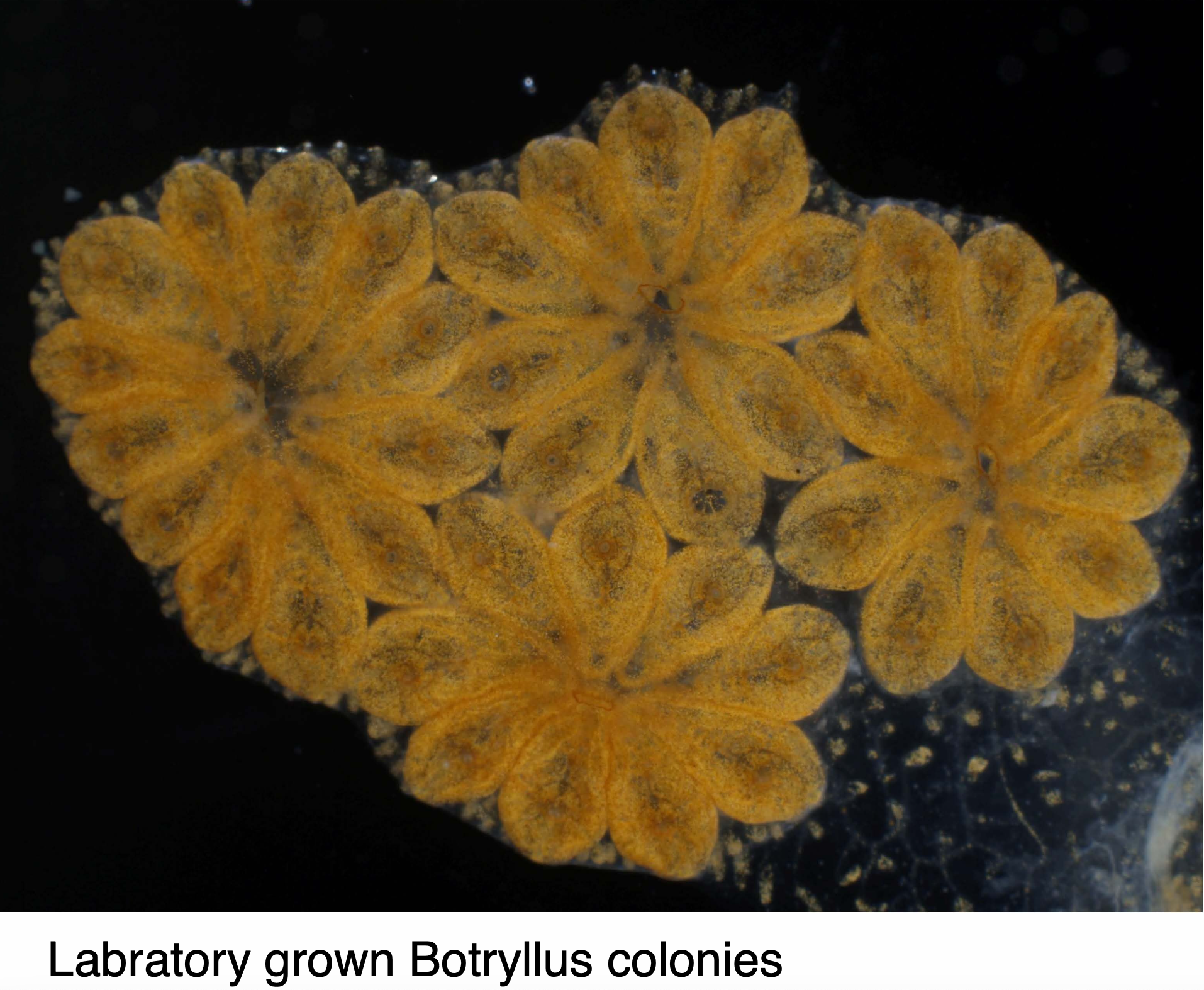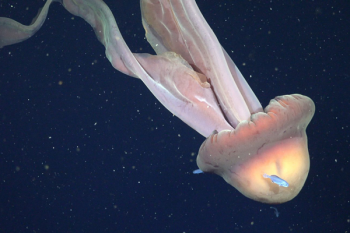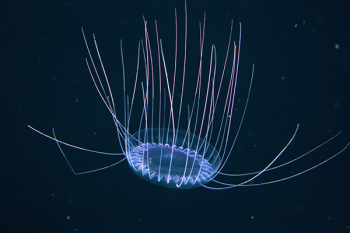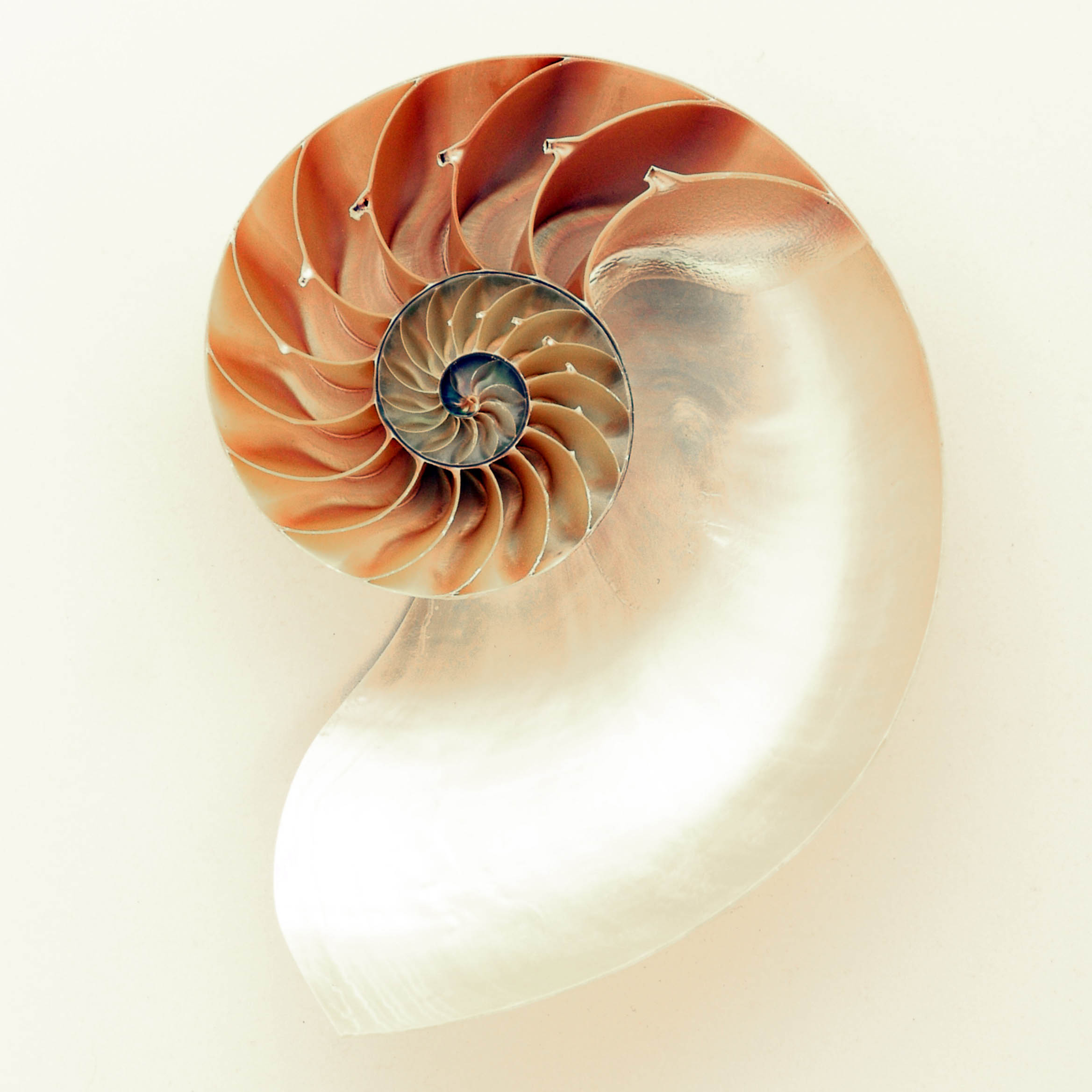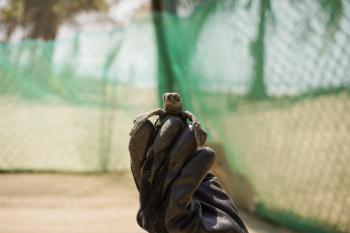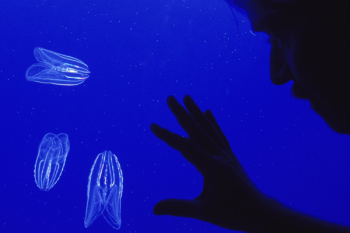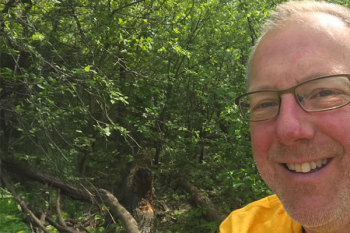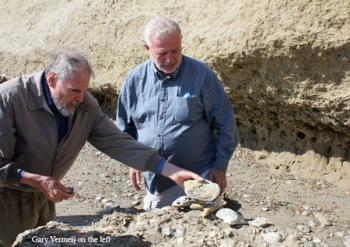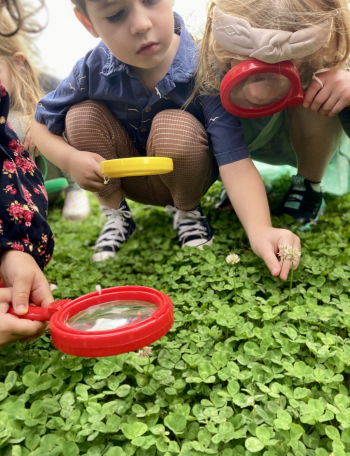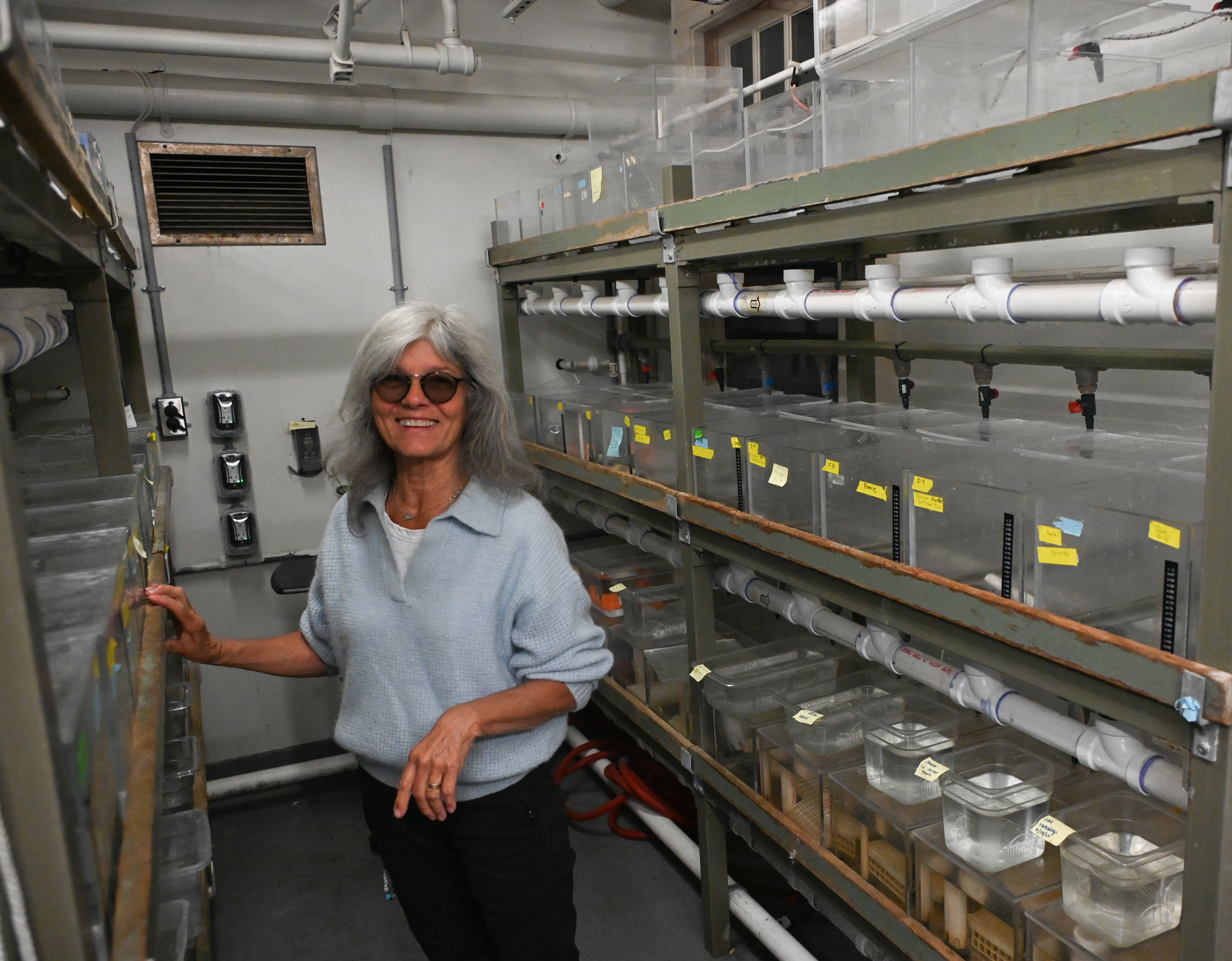
It was a fifth-grade teacher who brought a microscope into the classroom that sparked Karla’s interest in science. She collected pond water and began observation and and growing amoebas and diatoms. It was then that Karla knew that she wanted to be a scientist. She went on to get a degree in Biology.
After college Karla began teaching science in a middle school in Vermont. Wanting more of a challenge, Karla began a job as a technician at Hopkins Marine Station. She was hired in 1985 to work with Botryllus schlosseri, the colonial star tunicate, in Irv Weissman’s lab.
Initially, Karla’s work was observation and care of the animals. Anthony DeTomaso, the lab’s resident Associate Professor, offered to mentor her in the latest molecular techniques.
She’s Cookin!
Karla learned how to prep animals for DNA fingerprinting and RNA sequencing which was a new science then. She says, “the techniques we used to answer these questions have really changed—we’ve gone from the bicycle to the Tesla in 35 years.” She grew up with the lab’s new way of doing science because Irv recognized her talent. You need to “be a good cook” who can think creatively to do genetic sequencing work with invertebrates since DNA sequencing was exclusively designed for vertebrates.
Karla spends her days in a very chilly basement lab filled with tanks of tunicates. She collects the Botryllus tunicates from the wild. Recently it has been difficult for Karla to collect tunicates where she usually collects them due to a major anchovy die-off in Monterey Harbor, which killed tunicates colonies.
The wild tunicates reproduce and release embryos acclimated to the lab where they easily bud into a colony. Karla does research on these colonies and shares them with other scientists. It takes several months to grow in the lab before scientists can do anything with the animals.
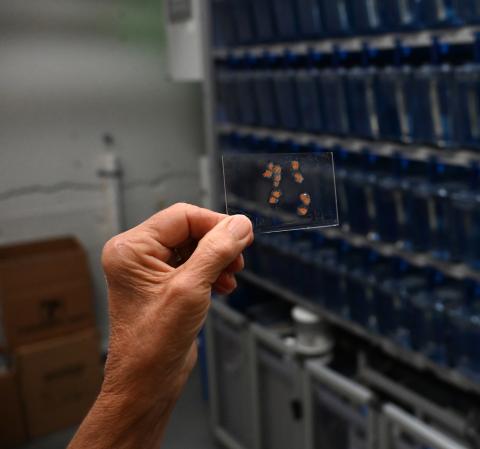
Applications in Immunology and Stem Cell Biology
Now the lab is run by Ayelet Voskoboynik, an expert in the field of comparative immunology and stem cell biology. The lab studies stem cells and regeneration in tunicates. Ayelet welcomes Karla's creativity as she recognizes her institutional knowledge of the lab. Karla loves working at Hopkins, “it’s a dream come true” She has collaborated with great people in the same lab for 35 years.
Will Tunicates Adapt to Climate Change?
Recent studies of tunicates in the lab are looking at how tides, temperature and carbon dioxide impact them. The conditions in the tanks mimic the animals’ natural habitat. Scientists are researching the expression of both clock genes and stress genes. Tunicates do not like warm water. As with most marine animals, we just don't know how or if they will adapt to the increasing warmth due to climate change.
Karla believes it’s important for science students to follow their hearts. “If you are interested in something, go for it!" says Karla. "Always ask for what you need,”
